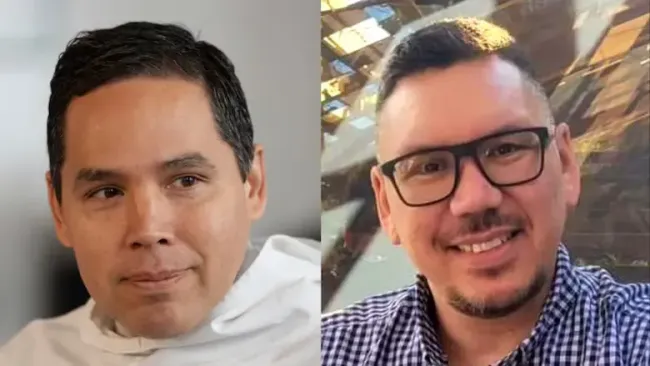ITK Presidential Election 2025: Natan Obed's Fourth-Term Bid Faces Challenge from Kevin Kablutsiak
As the Arctic winds signal change in Cambridge Bay, Nunavut, the Inuit Tapiriit Kanatami (ITK) – the national voice for over 70,000 Inuit in Inuit Nunangat – prepares for a crucial leadership vote. On September 18, 2025, delegates from four major Inuit organizations will decide the next ITK president at the annual general meeting. This year, it's a real race: longtime incumbent Natan Obed aims for a fourth term, while newcomer Kevin Kablutsiak brings a fresh perspective on renewal and community focus. With climate change, Arctic sovereignty, and domestic challenges like housing shortages in the spotlight, this ITK election 2025 could shape Inuit advocacy for years to come.
Who Is Natan Obed? A Decade of Leadership in Inuit Advocacy
Natan Obed, 49, has led ITK since 2015, making him the longest-serving president in the organization's history. Born in Nunavut with strong ties to Labrador Inuit governance, Obed's background includes key roles at the Labrador Inuit Association and Nunavut Tunngavik Inc. He was acclaimed in 2021 after initially considering stepping down, but the COVID-19 pandemic and ongoing political shifts kept him in the role.
During his tenure, Obed has driven major achievements for Inuit communities. He helped co-develop legislation to implement the United Nations Declaration on the Rights of Indigenous Peoples (UNDRIP) and established the Inuit-Crown Partnership Committee to elevate Inuit priorities at the federal level. ITK under Obed secured $23.2 million in federal funding in 2024, supporting programs like a national Inuit suicide prevention strategy and efforts to create the Inuit Nunangat University for culturally relevant higher education. On the global stage, Obed has championed Arctic sovereignty amid growing international interest in the region.
Why seek re-election? Obed points to a renewed sense of purpose in these challenging times. With a new Liberal prime minister, Mark Carney, and potential U.S. tariff threats under President Donald Trump, he emphasizes the need for experienced leadership to protect Inuit interests. "We're living now at a time of threat, especially from foreign nation states talking about taking over Canada, or considering the Arctic as the strategic point globally where we have to assert our sovereignty," Obed shared in recent interviews. Despite discussions around his salary range of $300,000 to $349,000, Obed stresses his commitment to unfinished goals, including addressing housing crises and mental health support.
Meet Kevin Kablutsiak: A Fresh Voice for Inuit Renewal
Kevin Kablutsiak, 47, enters the ITK presidential race as a political newcomer but a seasoned storyteller and community servant from Nunavut. He recently stepped down as managing editor of CBC North, where he hosted the popular morning radio show Qulliq. His career also includes marketing positions at Canadian North and First Air, plus communications roles at ITK and Nunavut Tunngavik Inc. Encouraged by community elders about a year ago, Kablutsiak sees his candidacy as a call to serve and amplify everyday Inuit voices.
Positioning himself as the candidate for "renewal," Kablutsiak promises to refocus ITK's national agenda on grassroots concerns. In his first 100 days, he plans to visit all Inuit regions to directly address key issues. Priorities include tackling housing shortages, improving food security, advancing self-determination, adapting to climate change, and promoting environmental stewardship. As a fluent Inuktut speaker, he strongly advocates for language revitalization, bringing an authentic cultural connection to the role.
"I've spent pretty much my life listening and learning and helping others to tell their stories," Kablutsiak explained. "And I want to ensure that the national voice of Inuit continues to reflect the hopes and the concerns and the strengths of our people." His approach appeals to those seeking more direct engagement and faster action on community-level challenges.
Key Issues in the ITK Election 2025: Where Obed and Kablutsiak Align and Differ
Both candidates share common ground on critical Inuit issues, highlighting the urgency of housing as a top priority. Obed highlights setbacks in the federal Inuit Nunangat Housing Strategy due to limited supply and maintenance issues, while Kablutsiak ties it to broader crises like food insecurity and suicide prevention, calling for stronger federal partnerships.
Arctic sovereignty is another shared focus, with Obed's diplomatic experience contrasting Kablutsiak's emphasis on community-driven urgency. This two-candidate race – a rarity after Obed's 2021 acclamation – allows delegates from the Inuvialuit Regional Corporation, Nunavut Tunngavik Inc., Makivik Corporation, and Nunatsiavut government to compare visions directly. It's seen as a positive development, fostering deeper debate and a stronger mandate for the winner.
What to Expect from the September 18 Vote and Beyond
On election day, candidates will give 10-minute speeches and answer questions before delegates vote in a streamlined process. Results will be announced swiftly through ITK's channels, influencing how Inuit priorities are advanced under the new Canadian leadership and amid global Arctic tensions.
Whether Obed's proven expertise or Kablutsiak's innovative energy prevails, the ITK presidential election 2025 marks an exciting evolution in Inuit leadership. Stay updated as this story unfolds – it could redefine advocacy for Inuit Nunangat in dynamic times ahead.
For more on Inuit Tapiriit Kanatami news, Arctic sovereignty updates, or Indigenous leadership in Canada, follow our blog for the latest insights.
